
Page 3
BAKA-JATAKA
A crane by pretending that he was taking them to a big lake, devours all the fish of a pond. A wise crab nips the bird’s head off
Picture : PongPang
Paint : Pupay
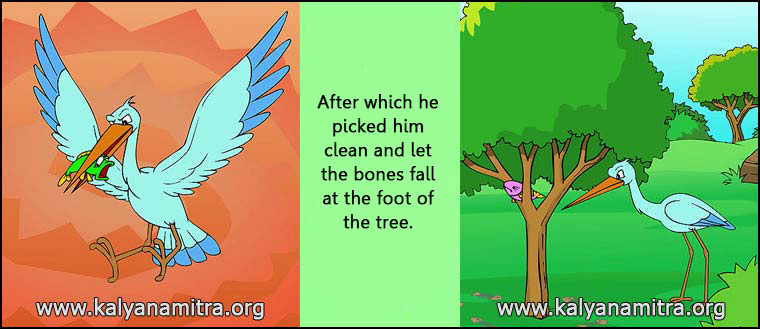
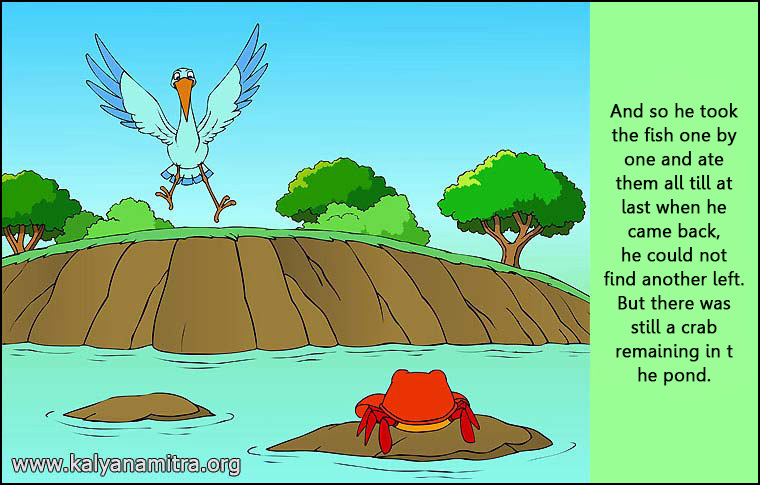
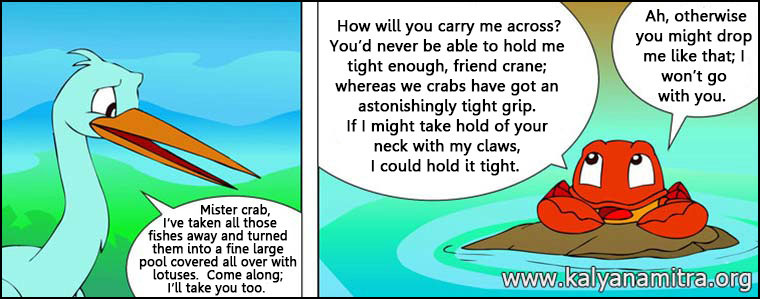
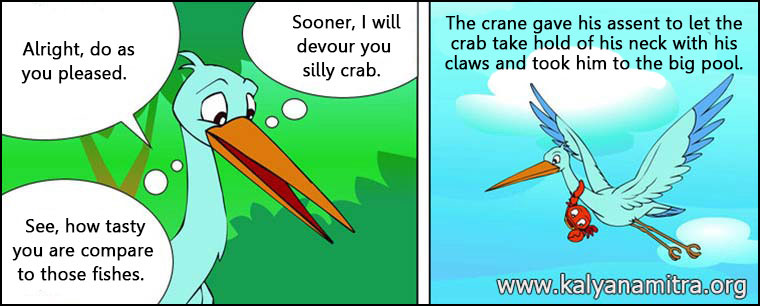


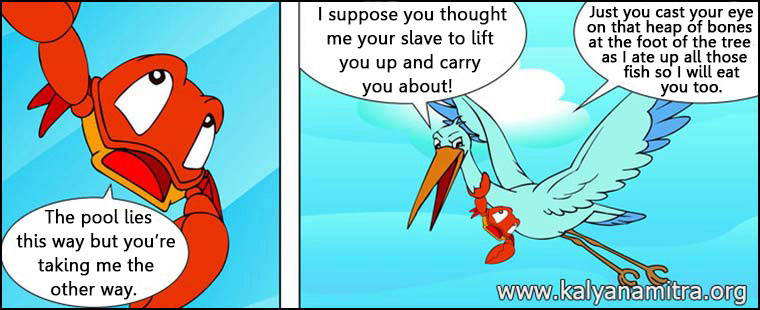
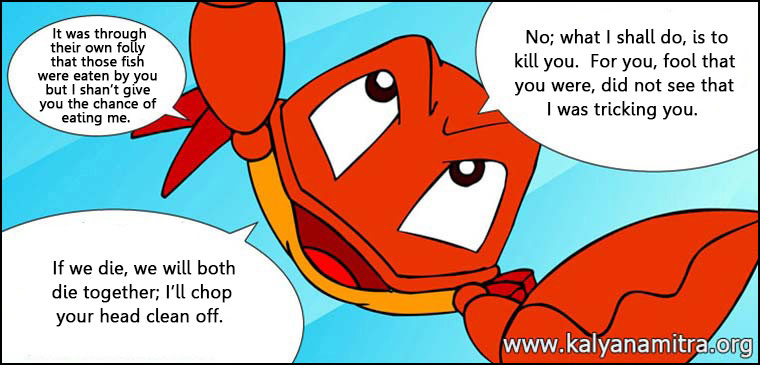
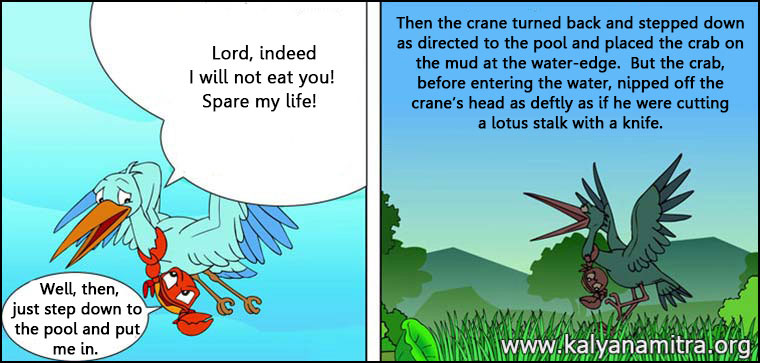
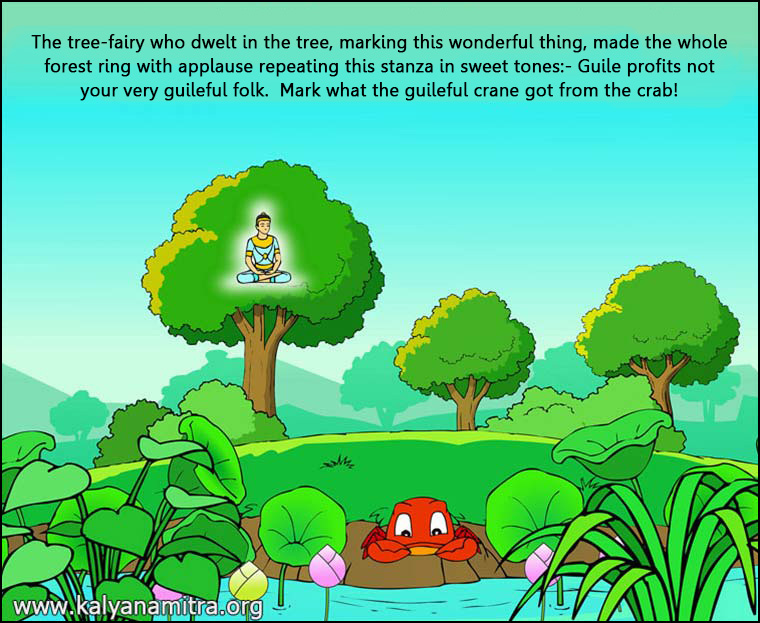
The Origin of the Story
This story was told by the Lord Buddha while residing at Jetavana monastery about a tailoring monk. Tradition says that at Jetavana monastery dwelt a monk who was exceedingly skillful in all operations to be performed with a robe such as cutting, joining, arranging and stitching. Because of this skill, he used to fashion robes and so got the name of ‘The Robe-tailor’. He exercised his craft on old bits of cloth and turned out a nice soft robe, which, after the dyeing was done, he would enhance in color with a wash containing flour to make a dressing and rub it with a shell, till he had made it quite smart and attractive. Then he would lay his handiwork aside.
Being ignorant of robe-making, monks used to come to him with brand-new cloth, saying, ‘We don’t know how to make robes; you make them for us.’
Now, there was a robe-maker in a hamlet who used to cozen everybody just as the brother did at Jetavana. This man’s friends among the monks said to him, ‘Sir, they say that at Jetavana there is a robe-maker who cozens everybody just like you.’ Then the thought struck him, ‘Come now, let me cozen that city man!’ So he made out of rags a very fine robe which he dyed a beautiful orange. This he put on and went to Jetavana.
The moment the other saw it he coveted it and said to its owner, ‘Sir, did you make that robe?’ ‘Yes, I did, sir,’ was the reply. ‘Let me have that robe, sir; you’ll get another in its place.’ ‘But, sir, we village-monk find it hard to get the requisites; if I give you this, what shall I have to wear myself?’ ‘Sir, I have some brand new cloth at my lodging; take it and make yourself a robe.’ ‘Venerable sir, herein have I shewn my own handiwork but if you speak thus what can I do? Take it.’ And having cozened the other by exchanging the rag-robe for the new cloth, he went his way.
After wearing the botched robe in his turn, the Jetavana man was washing it not long afterwards in warm water when he became aware that it was made out of rags and he was put to shame. The whole of the monks heard the news that the Jetavana man had been cozened by a robe-tailor from the country.
Now, one day the monks were seated in the hall of truth discussing the news when the Lord Buddha entered and asked what they were discussing and they told him all about it.
Said the Buddha, ‘Monks, this is not the only occasion of the Jetavana robe-maker’s cozening tricks; in bygone times also he did just the same and as he has been cozened now by the man from the country so was he too in bygone times.’ And so saying, he told this story of the past.
The story of Jātaka
-
The revealing of the identities
-
What are learned from the story:
1. One should train oneself to be a capable person so as not have to always rely on others but oneself.
2. The tricky person will one day be beaten at his own game.
3. The fool will reap the ill fruition of his own unwholesome deed.
The End